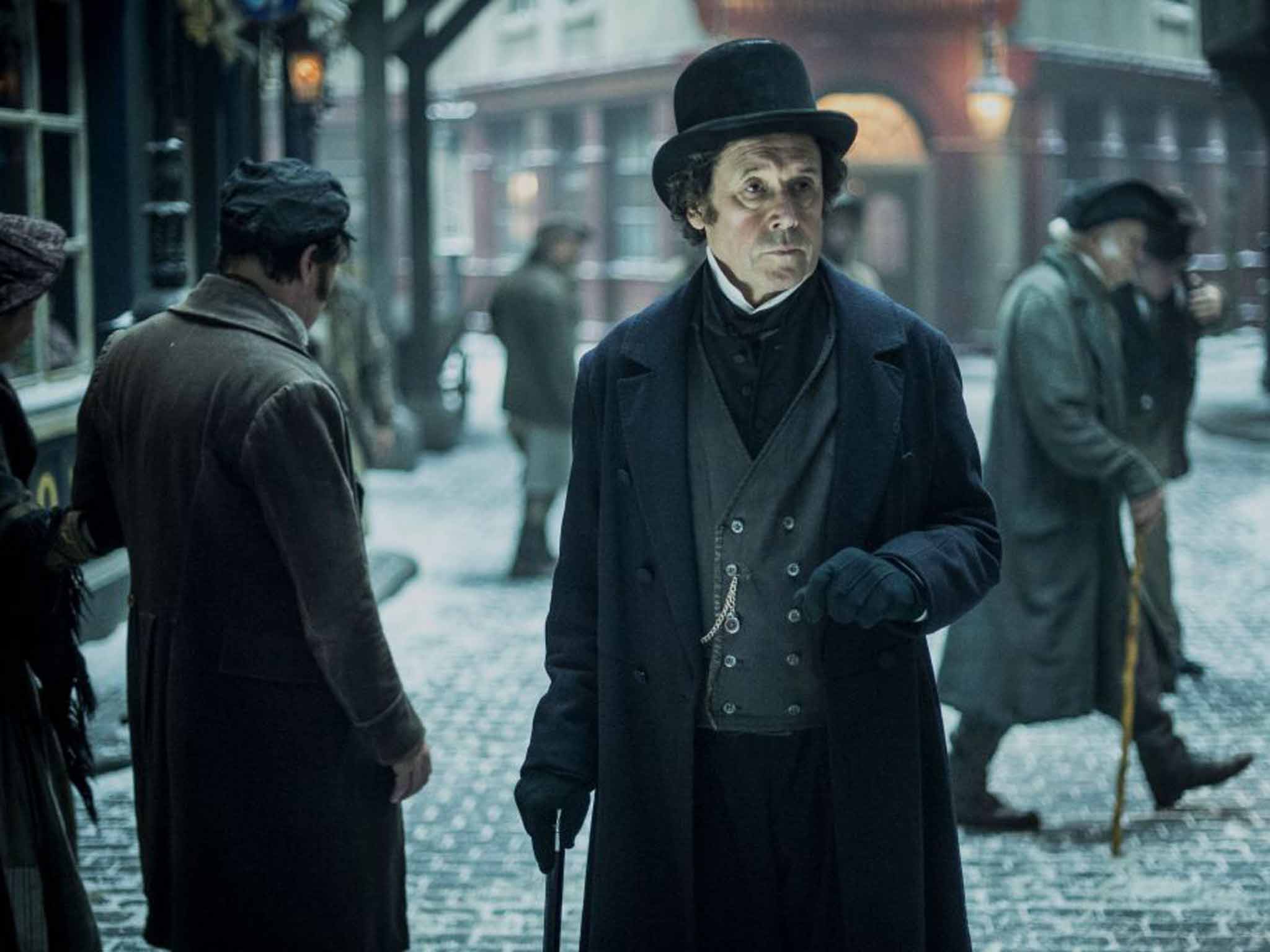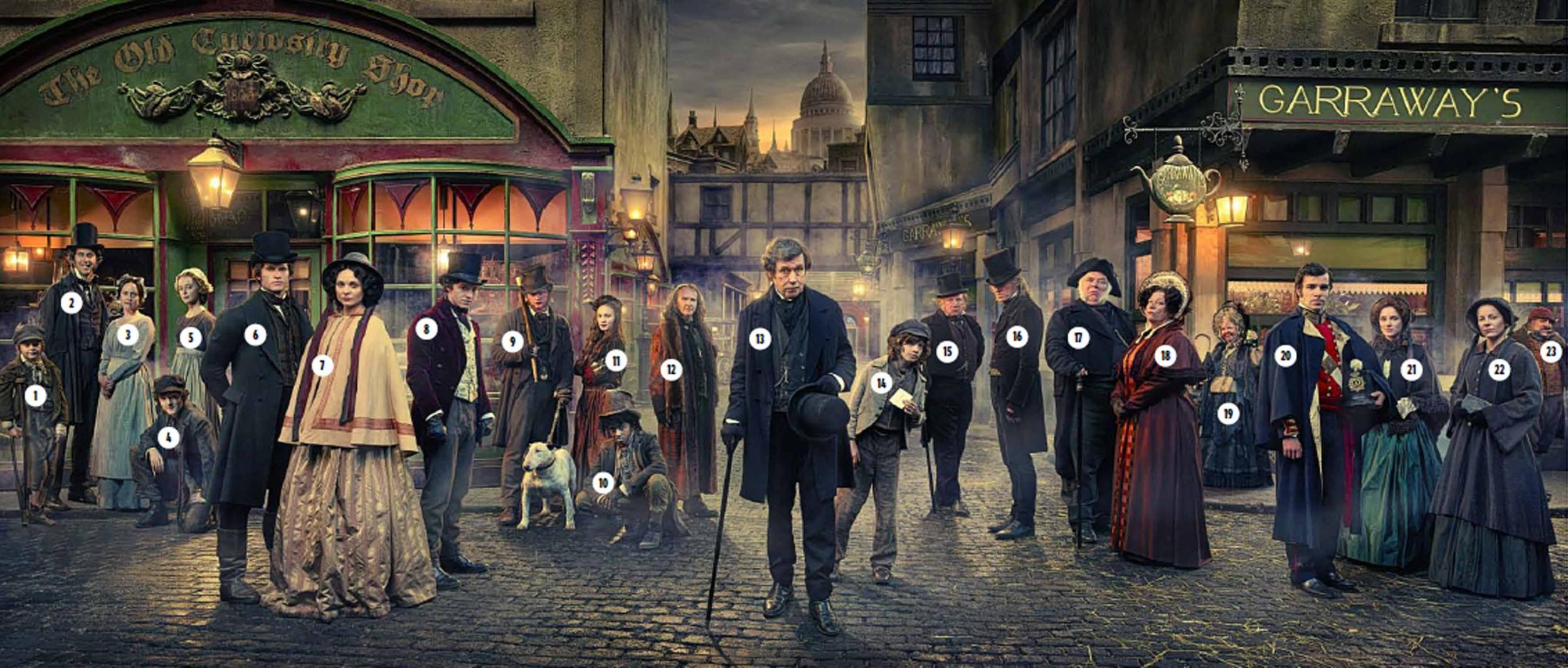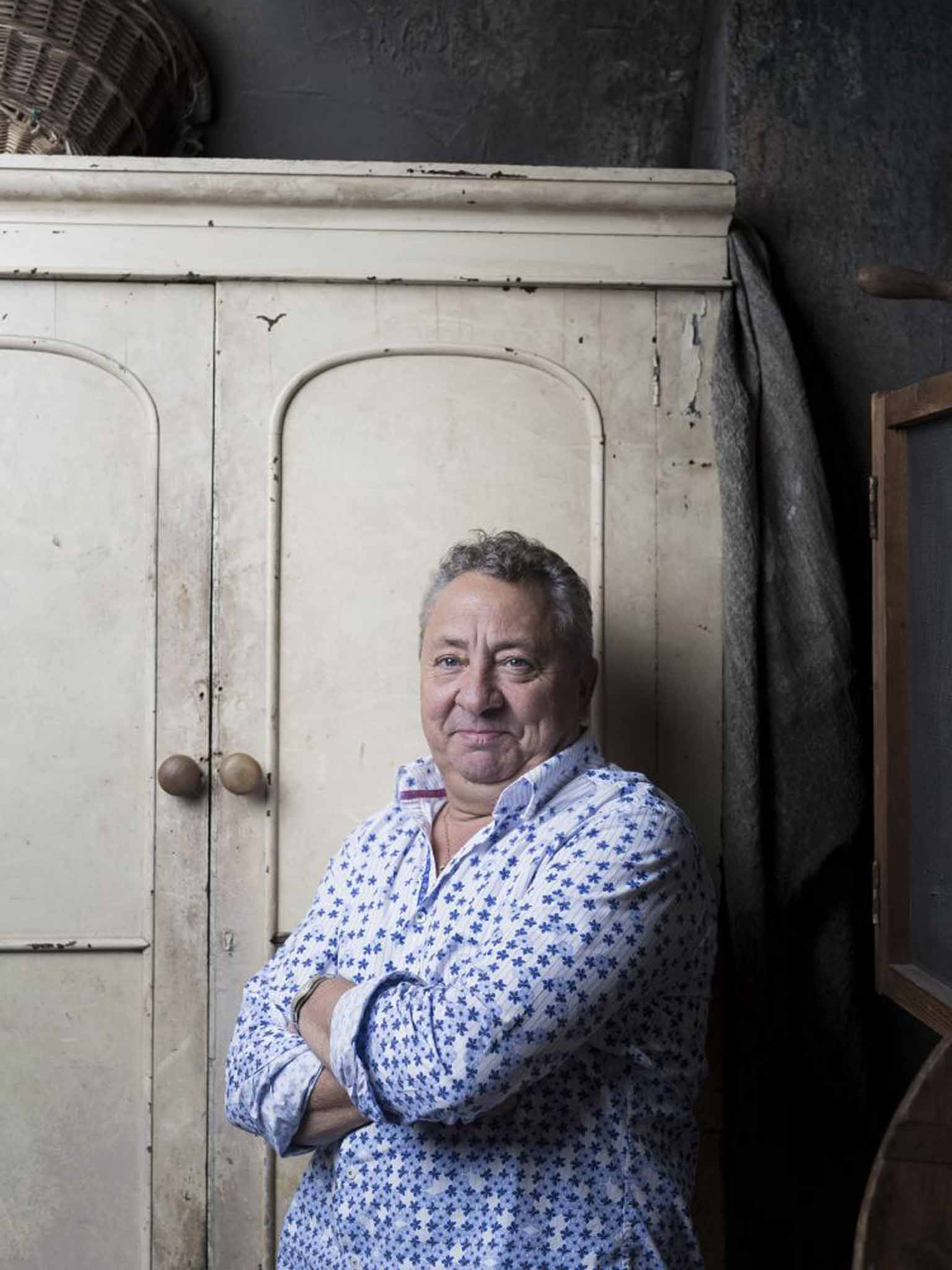'Dickensian' is the BBC's biggest Christmas offering: When Fagin met Scrooge
Its creator, the 'Eastenders' writer Tony Jordan, tells Ian Burrell why Dickens would have approved of weaving together 25 of the novelist's best-loved characters into one 20-part series

Your support helps us to tell the story
From reproductive rights to climate change to Big Tech, The Independent is on the ground when the story is developing. Whether it's investigating the financials of Elon Musk's pro-Trump PAC or producing our latest documentary, 'The A Word', which shines a light on the American women fighting for reproductive rights, we know how important it is to parse out the facts from the messaging.
At such a critical moment in US history, we need reporters on the ground. Your donation allows us to keep sending journalists to speak to both sides of the story.
The Independent is trusted by Americans across the entire political spectrum. And unlike many other quality news outlets, we choose not to lock Americans out of our reporting and analysis with paywalls. We believe quality journalism should be available to everyone, paid for by those who can afford it.
Your support makes all the difference.Having built a television production empire and filled a mantelpiece with awards for a string of hit shows, Tony Jordan remains irresistibly drawn to the meagre trappings of life on the poverty line. He hunkers down at a wooden table before an open hearth in a room that is the picture of Victorian hardship. This is Jordan's vision of the family home of Bob Cratchit, clerical underling of Ebenezer Scrooge, father of Tiny Tim, and one of Charles Dickens's most memorable symbols of social inequality.
“This is where I would live!” he shouts out. “When this set is working there's a fire roaring, Emily [Mrs Cratchit] is stirring stuff and there are kids and bunk beds everywhere.” Jordan is the writer and executive producer of Dickensian, a 20-part drama series combining characters from across the novelist's oeuvre and for which the BBC has allowed him to build a set of Hollywood ambition.
Its 27 two-storey buildings line a 90-metre cobbled street, along which it is possible to drive a chaise and four. There is a smell of horses and straw. Filming is going on inside the Three Cripples pub (Oliver Twist), along the street from Inspector Bucket's police station (Bleak House) and across the road from Mantalini's dress shop (Nicholas Nickleby). The Cratchit home is Jordan's favourite because “I'm a little northern working-class boy – I'm not going to be in Satis House, am I?” he says, referring to the ornate residence of Miss Havisham in Great Expectations, replicated in an adjoining set.

Then there are seven shadowy back-alleys leading to the dirt and laundry-strewn Mudgate Street, where Jordan depicts the darker side of late 19th-century London. But there's no River Thames, because the money ran short. “I was hoping to get some water, genuine physical water. I had a couple of scenes written and there's a Dickensian image of the rowing boat on the Thames,” he concedes. “That was a disappointment – we kind of ran out of money.”
The creator of numerous near-contemporary drama hits, such as Life on Mars and Hustle, found himself acting out his own Dickensian role. “At one point the build became so ambitious that I had to go back to BBC Worldwide and say I need a tiny little bit more please. I felt like Oliver Twist. But it wasn't that much and they gave it to me, so that was fine.”
He was given the extra budget because, no doubt, BBC Worldwide – the commercial arm of the BBC and a partner in the production – believes the series can more than pay its way through sales to international broadcasters. “They did some research about Dickens as an international brand, because obviously their job is to try and sell it round the world. It's pretty amazing – you have people in South Korea going 'Oh Fagin! Oh Bob Cratchit!'”

Dickens, as Jordan realises, was himself a living international brand. “He was a sexy boy and acted out his scenes. People fainted while lining up in queues to hear him speak – he was the first celebrity writer.” All in all, he says, making Dickensian was a “no brainer”.
Except that it wasn't nearly that simple. Leaving aside the “huge obstacle” of locating a site capable of hosting a vast set and then getting it built, the very concept of the series is bold and original. Jordan is an exceptional writer of popular television, responsible for some of the most-remembered episodes of EastEnders, and this project is the product of his imagination, as well as that of Dickens himself.
Playing around with such well-loved and well-known stories risks controversy. Isn't he worried that he will damage a Ming vase? His response is instant. “You can either put the Ming vase in a glass case using white gloves, or you can take it outside and put some flowers in it. You can do that with Dickens as well, hold him up as some sort of literary giant that shouldn't be tampered with, or continue to be respectful but appreciate the joy in it.”
Jordan's multi-episode approach is a nod to All The Year Round, the Dickens journal in which several great novels were serialised. Jordan compares Dickens' commercial publishing enterprises to his own Red Planet production company (for which he is filming concurrent projects in Guadeloupe and South Africa while preparing to film the BBC1 Motown musical drama Stop! In the Name of Love) and feels sure that the novelist would approve of Dickensian.
“He would have loved it, I know he would, because I am faithful to his characters and I have explored them and enjoyed them for a popular audience, which is who he wrote for,” he says. “It's a real celebration of Dickens. I am not trying to be smart-arse; I am just trying to bring Dickens to a new audience.”
He wrote the storylines for all 20 episodes before he began the script, and he talks of his pleasure at the new character relationships he created. “I wrote a scene not long ago where Fagin suggests that he and Scrooge go into business together and it was joyous – I loved writing that,” he says, before adopting the voice of the notorious Oliver Twist fence. “'I can see it now my dear… Fagin and Scrooge… it's got a warmth to it.'”
Jordan's Fagin will be played by Anton Lesser and he says the acting talent that has been attracted to the project is a vindication of the idea. “The moment the word got out about the ambition, scale and concept we had people phoning us and saying, 'Has Mrs Gamp gone yet?' We had the cream of British acting talent to choose from.” Pauline Collins bagged Mrs Gamp. Caroline Quentin is Mrs Bumble from Oliver Twist.
Jordan's background as a writer was far from conventional. He was 32 when he sent off his first unsolicited script to the BBC after being inspired by a workshop given by the creator of Only Fools and Horses, John Sullivan. He later used his background as a market trader to write for EastEnders. Like Bob Cratchit, Jordan, a father of six, has a large family. Unlike Scrooge's employee, he has a great sense of opportunity. “I'm a bit like Pacman,” he says, in reference to the voracious computer game character. “I'm hungry, I'm ambitious, I'm driven and I want to set the world on fire. That's my nature.”
Dickensian begins on BBC1 in Christmas week but Jordan is already convinced that the project should run well beyond the initial 20 half-hours. “Dickens has 2,000 characters and I have used around 25,” he says. “In between series one and two some characters will leave because their stories have been told, which will allow me to replace them with a whole new raft of iconic Dickens characters.”
He says he has already storylined three entire seasons. “I know what's happening in the first 60 episodes and I will be knocking on the [BBC] door soon saying, 'Look, you've seen it and it's brilliant. Come on, let's do some more.'”
Such an epic commitment by the BBC will help new generations to discover Dickens. “I've got six kids and I can't get them off the Xbox to read the paper let alone a novel,” he says. “But if they are engaged, if they are fascinated by the story I am telling with Miss Havisham and want to find out what happens next, they can do that. If they fall in love with Bill Sykes and Nancy, they can go and read Oliver Twist.”
He has written Dickensian to appeal to the widest possible constituency. “You do not need to have ever read a Dickens novel, [though] it also works if you are a Dickens expert and everything in between.”
And having further seasons will allow him to add a River Thames with real water to his extraordinary Victorian model village in the west London suburbs.
“Look, it's 2015 and I can have whatever I want because there's CGI – so we have got the docks in the first series. Fagin lives by the docks. The audience won't be disappointed, it's just me because I wanted that physicality of real water,” he says. “But I will do it next series.”
'Dickensian' starts on BBC1 in Christmas week
Join our commenting forum
Join thought-provoking conversations, follow other Independent readers and see their replies
Comments